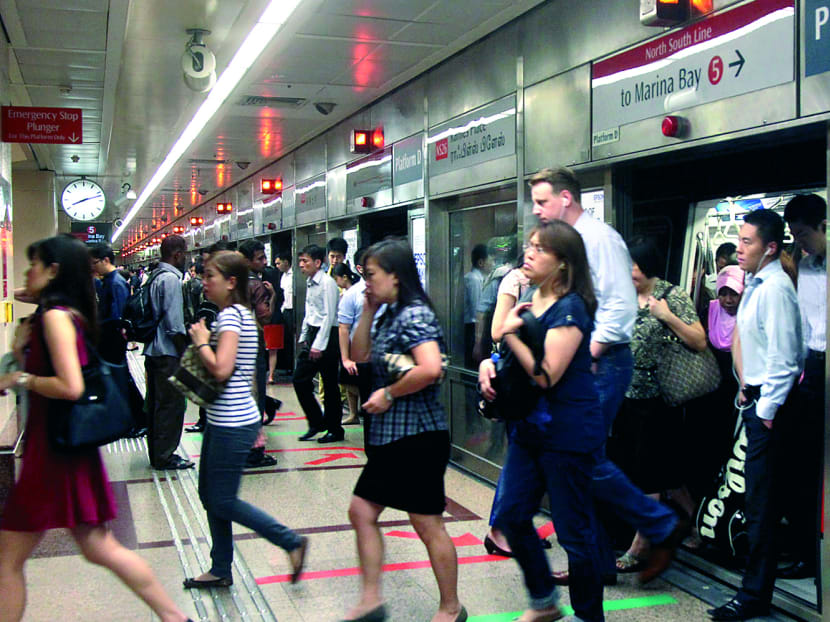People who commute to work are unhappier, UK survey finds
LONDON — Commuting to work makes you unhappy and anxious, particularly if you spend more than half-an-hour on a bus, according to a study on the wellbeing of workers by the UK Office for National Statistics (ONS).

TODAY FILE PHOTO
LONDON — Commuting to work makes you unhappy and anxious, particularly if you spend more than half-an-hour on a bus, according to a study on the wellbeing of workers by the UK Office for National Statistics (ONS).
“Holding all else equal, commuters have lower life satisfaction, a lower sense that their daily activities are worthwhile, lower levels of happiness and higher anxiety on average than non-commuters,” the report said, with the worst effects of travelling to work associated with journey times of between an hour and 90 minutes.
The research was based on data from the Annual Population Survey, where people were asked where they worked, how long they travelled for, how satisfied they were with their life, and how happy or anxious they had felt the previous day.
The final sample of more than 60,000 people included employees and the self-employed, and 91 per cent were classified as commuters.
The research found that when compared with those who worked from home, commuters were less satisfied and happy, and when compared with each other, for each extra minute they travelled commuters became less satisfied.
This, however, levelled off when the travel time reached three hours, “suggesting that those with very long commutes have quite different experiences than those travelling less time,” the ONS said. “For example, people may be able to use their travel time more productively on a longer journey.”
When the researchers looked at transport methods they found that those who travelled to work by bus or coach had a lower sense that what they were doing was worthwhile than those who travelled by car, while those who used the train were more anxious.
People who walked to work reported lower satisfaction levels than those who went by car, but those who reported travelling “some other way”, which would include cycling to work, had higher satisfaction levels and were less anxious than those who travelled in cars.
“Given the loss of personal wellbeing generally associated with commuting, the results suggest that other factors such as higher income or better housing may not fully compensate the individual commuter for the negative effects associated with travelling to work, and that people may be making sub-optimal choices,” the ONS said.
Dr Daniel Newman, from Cardiff University’s Sustainable Places Research Institute, said: “This report says what many of us who spend our mornings and evenings sat in traffic jams or packed like sardines on a rail carriage already know: Commuting can be a chore.”
Dr Newman said previous studies had shown that commuting affected physical health, with those travelling a long distance less likely to take exercise or eat home-cooked meals, and more likely to suffer from insomnia and joint pain.
“Research has shown civic identity in decline, especially in urban areas where commuting leads to an alienating social atomisation. These are fragmenting communities whereby neighbours simply pass by one another as they travel back and fore to work,” he said.
“As a result, commuters lack the reassurance that comes from fraternity and mutual support – they become isolated pockets of stress and dissatisfaction.” THE GUARDIAN





